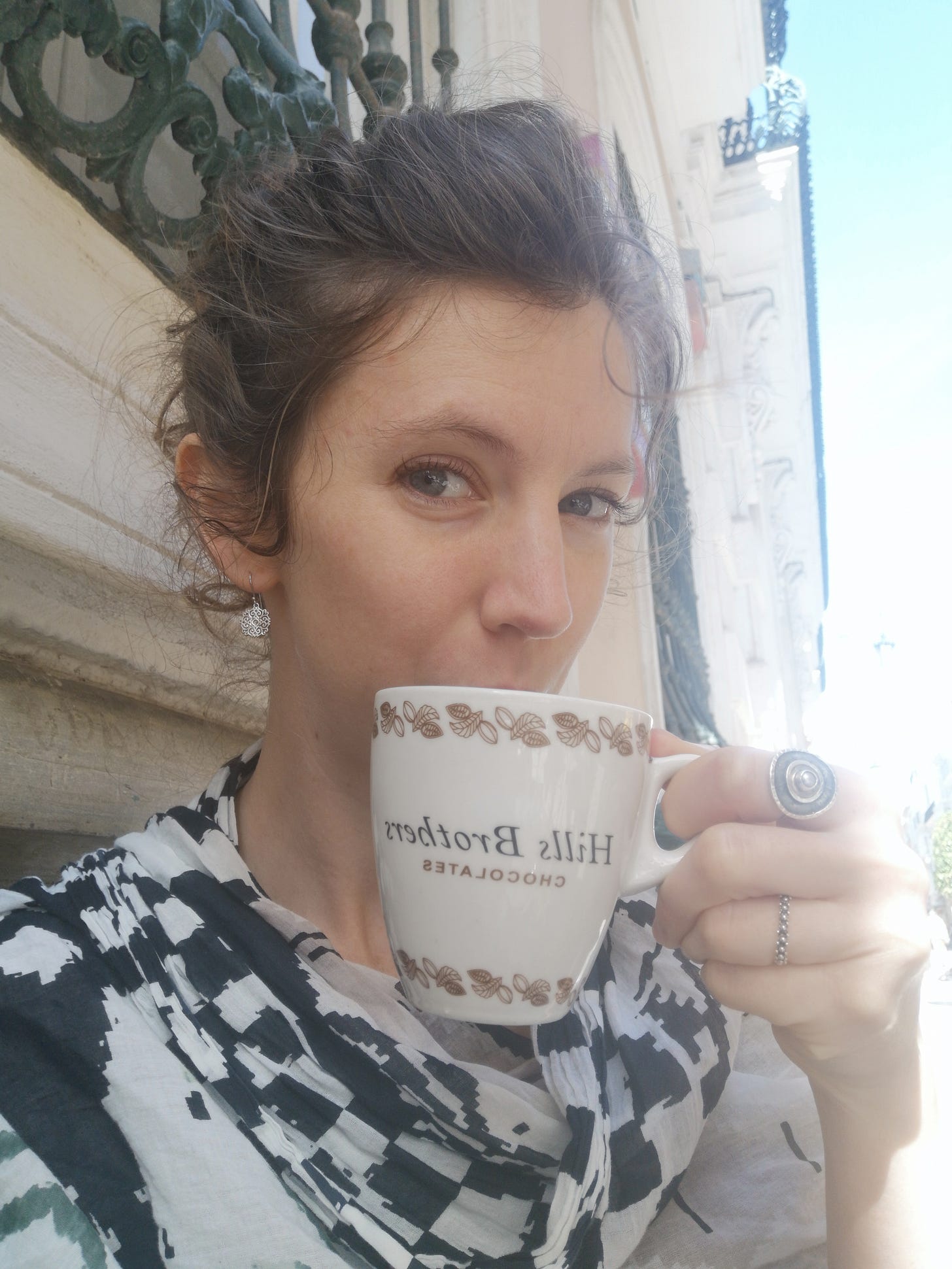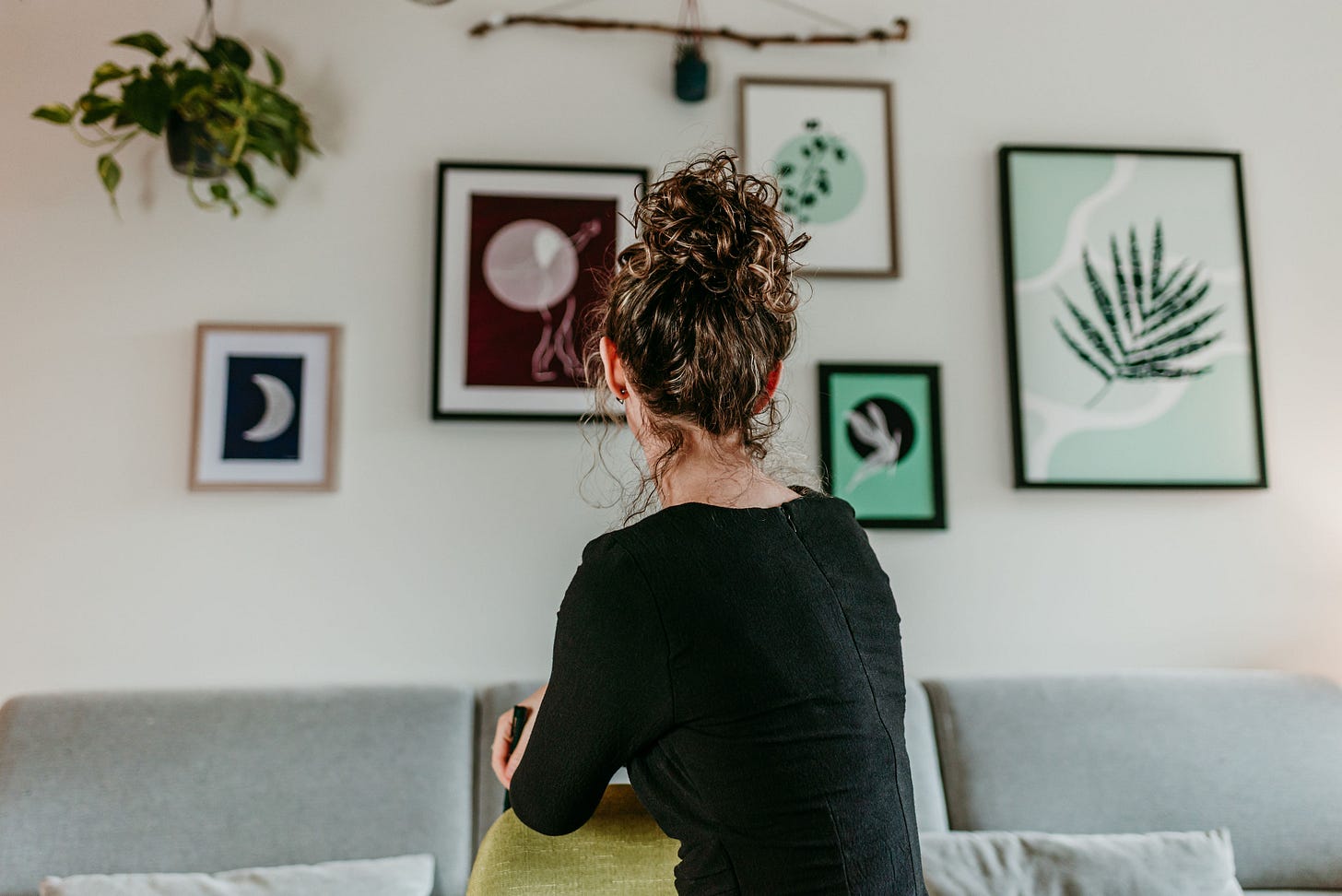Welcome to Resurface, with me, Tamzin Merivale.
I’m an intuitive artist, writer and mentor, and this space is for creating deeper connections not only to others, but to parts of ourselves that have been forgotten, neglected, or are waiting to be discovered. I’m here to show you just how much you light up the world a round you, simply by existing.
My mission is to see the unseen, to hear the unheard, to bear witness.
You can learn more about how I do this here.
In a session with a client last week, I noticed that there was something that she really, really wanted — a deep desire or dream — but she couldn’t say it out loud.
The block preventing her from speaking about it was like a separate presence in the room — a ghost forbidding her from uttering something so raw. It took some time to coax her to put it into words, and as soon as she did, she followed it with all of the reasons not to want it: it won’t happen, it can’t come true, I’m happy without it, I can settle for less.
Why does this difficulty of saying what we really want, run so deep?
There are plenty of reasons to not admit our desires, even to ourselves. If we do, we also have to acknowledge the pain of the gap where they haven’t been fulfilled, and the potential disappointment or sadness of never achieving them, or of never getting what we want — it’s much easier to pretend that those wants just don’t exist.
If you struggle to acknowledge your own wants and desires, a good place to start is to bring awareness to the conditioning around our language. When I grew up, saying “I want” was simply not on. We were taught to say “I would like,” instead. I’m still not sure why the conditional is considered to be so much more polite, but these simple shifts in language make a huge difference to interpretation:
Want implies greed — we should be grateful for what we have rather than ask for more.
Want implies lack — shame comes in here, nobody wants to publicly admit where or what might be lacking in their lives, relationships, themselves, etc.
Want implies demand — almost entitlement — which is seen as downright rude.
Would like on the other hand, seems more ladylike, patient, and ready to accept whatever in return.
Would like is so easy to refuse.
While Want is loud and brash, Would like has a quiet little voice and waits politely at the back of queue.
I’ve always been one of those obstinate people who never struggled to admit, at least to myself, that there are a lot of things I dream of, or hope for (see how, even here, I find it hard to write, ‘a lot of things I want’?). My heart speaks loud and clear, and I can never manage to ignore it. Inwardly, at least, I own all of my desires, and outwardly, I pursue them to the best of my ability (one could argue I fall a little short here — I do seem to spend a lot of time faffing about).
I’m not explicit about what I want, but others have told me that I have high standards and that they can see my refusal to settle for less than what will make me happy. Even so, that voice still shows up — something inside me just loves to remind me that I’m lucky, that I have a roof over my head etc, so check your privilege and be sure not to let anyone see that you’re asking for more!
You know what? Enough of that.
We are allowed to want more than having our basic needs met — to have the best possible experience while we’re here, whether we desire a particular career, a fantastic relationship, a different lifestyle or even sometimes, material and ‘unnecessary’ things.
‘Want’ does not need to imply greed or selfishness. This is what it comes down to — there is, somehow, an assumption that wanting for ourselves means we aren’t considering the needs of everyone else, which simply isn’t true. I know that I, and everyone I know, wants more fervently, sometimes desperately, for the collective than we do for ourselves.
We know that we want women to be safe, we want freedom for all, we want the environment to be protected and animals and humans alike to be treated with respect. We don’t want violence or oppression to exist, and we’d be willing to do so much to fight it.
So if it’s OK to want others to prosper — why isn’t it OK to want to prosper ourselves?
We can want for our loved ones/friends/strangers to be healthy and happy, and also want financial freedom, fun and pleasure for ourselves.
We can want for nobody to be hungry, homeless, lonely or sad, and also want to create beautiful experiences with our loved ones.
One doesn’t cancel out the other.
If you succeed in uttering and even attaining some of your wants, you’re more likely to be able to help others get what they want too — the happier you will be in a better position to give back to the collective. If you realise your dreams, you’ll show others that they can too. If you own your supposedly ‘greedy’ desires, you’ll show those around you that it isn’t actually greedy, at all.
As long as your desire isn’t hurting anyone else or doing harm, then go ahead and WANT IT.
Let me know by hitting reply or in the comments, what’s ONE THING you want right now? No shame, just say it.

If you struggle with admitting/thinking about or even knowing what you want, try to write a list or say out loud:
What do you want right now in this moment?
What do you want to feel?
What do you want to happen in the next few months?
What do you want to achieve?
What do you want for the people you love?
What do you want for the whole world?
If the inner voice tries to tell you that you’ll never get what you want, or that it’s wrong to even want it in the first place, kindly tell it where to go, take a deep breath, and carry on.
Until next week,
Tamzin xx






"If you realise your dreams, you’ll show others that they can too. If you own your seemingly ‘greedy’ desires, you’ll show those around you that it isn’t actually greedy, at all." Reminds of Glennon Doyle talking about the fact there is no such thing as one way liberation. Needed this reminder that it's not selfish to talk about what we want, especially as women.
These days, my truest want is financial freedom and security. I want to live comfortably, get paid for my artistic work, and be able to regularly support communities in need.
I remember being told ‘I want never gets’ when I was very small and I never forgot it. As a child I remember using the words ‘I would like’ when I really wanted to say I want but thought that would jinx me! The message can be reinforced so frequently it’s taken on deeply, the women I work with find it incredibly difficult to ask for what they want, sometimes to even know what they want.